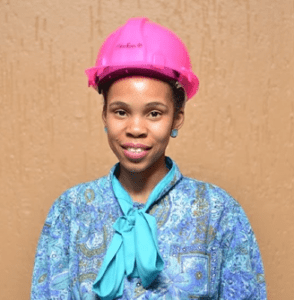U.S. & Canada Toll Free: 1.877.585.9555 Email: sales@gaorfid.com
Overnight Delivery in Continental US & Canada | Expert Support
 Biography
BiographyBongekile Matsenjwa believe that STEM (Science, Technology, Engineering, Maths) is necessary for innovation and economic growth. After completing her chemical engineering an undergraduate and honours degree from the University of Pretoria, she continued to pursue a master’s degree in Engineering Management from the University of Pretoria. She is currently pursuing her PhD in engineering management from the University of Cape Town. Bongekile Matsenjwa works as an integrated Lean six-sigma Engineer (IL6S) for Mondelez International in Matsapha in Eswatini where she has worked for the past five years. She is also the 2021 Mandela Washington Fellow. As a servant leader, she believes in the development of women and girls which is crucial for the development of any nation. Bongekile Matsenjwa is also the managing director for WomEng (Women in Engineering) Eswatini, a registered NPO that works to raise the next generation of female STEM professionals in Eswatini. WomEng Eswatini has reached over 1000 high school girls to educate and mentor them to explore various opportunities in STEM. WomEng Eswatini has coached, mentored and provided professional opportunities to over 100 female STEM professionals. Bongekile Matsenjwa is a registered professional chemical engineer with the Registration of Architects, Engineers, Surveyors & Allied Professionals Council (AESAP) in Eswatini. Bongekile plans to upscale WomEng Eswatini to reach and impact more women and girls in and outside Eswatini.
Employment in Science, Technology, Engineering, and Mathematics (STEM) occupations is projected to grow 8.8% by 2028, and healthcare occupations, which generally require a strong STEM background, are projected to grow even more. Meanwhile, non-STEM occupations will only grow 5%. Jobs that require a STEM background are more likely to provide solid wages. A robust STEM education is becoming more and more important to our economy. Yet, fewer women participate in science education and therefore have limited access to jobs in these fields, which are among the highest paying. Research shows that excelling in science and mathematics is a strong indicator of later earnings, with women in STEM jobs earning more compared to women in non-STEM jobs